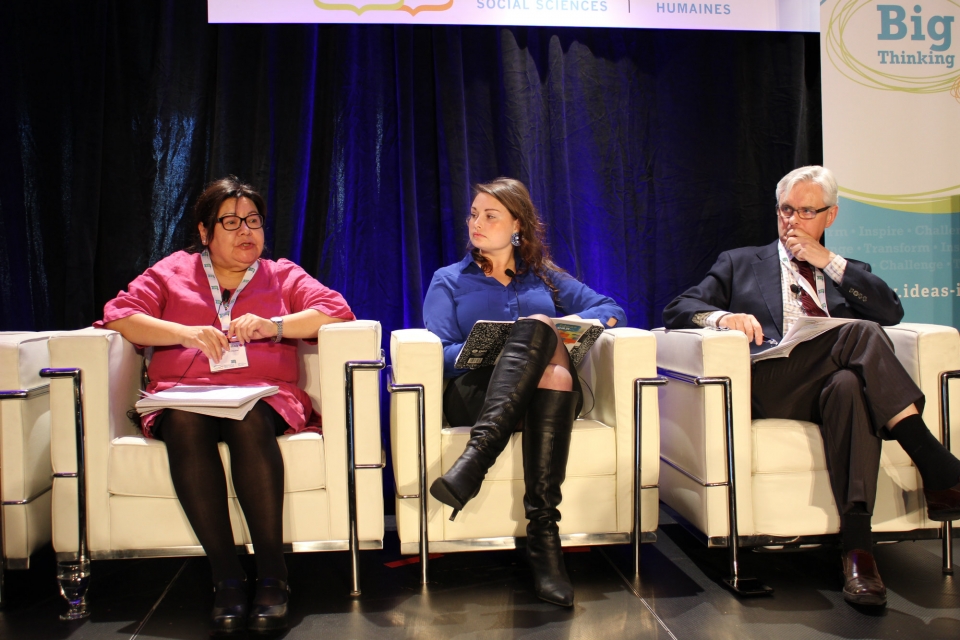For me, the most exciting, challenging and inspiring moment at the Federation’s Annual Conference last week came from a young woman who spoke from the floor. We had just heard a moving and thought-provoking talk from Wab Kinew, the acclaimed writer, journalist and musician who is now serving as Associate Vice-President of Indigenous Affairs at the University of Winnipeg. He spoke about the challenges our colleges and universities face in helping to advance reconciliation with Aboriginal peoples. We then enjoyed a panel discussion on the same subject, featuring leaders from different backgrounds in the higher-education sector, and we had begun to take questions and comments from our attendees.
That’s when this young woman stepped up to a microphone. First, she acknowledged one of the challenges we had been discussing: how to welcome Aboriginal knowledge in our institutions. For her the barrier was writing. She was constrained by the forms of writing required by her schooling, she told this room of 170 people, explaining how she felt she could only bring one half of herself into her work. How does she tell her own story? How does she begin a relationship? Where, she asks, do I put the knowledge of the elders?
And not far away in the audience there’s me, for whom writing has always been so easy. It was early in my undergraduate career when I discovered that I could get an easy A in many of my courses by simply aping the language of my professors. The conventions were familiar to me; the mechanics were so easy to manipulate. My ways of knowing, thinking, speaking and listening were welcomed at my university. Hers are not.
Reconciliation is innovation
The responses from our panellists demonstrate the caliber of discussion we enjoyed at the conference. S. Brenda Small – Vice-President, Centre for Policy in Aboriginal Learning, at Confederation College –used this story to emphasize that reconciliation is innovation; it will require systematic change. And a part of that change is finding a place for our spiritual experience in our academic work. This point was reinforced by Federation President Stephen Toope. He shared how a growing number of students, Aboriginal and non-Aboriginal, are saying that their heart and soul is being diminished in classrooms taught only according to rationalist, secular traditions.
Gabrielle Fayant – a leader in youth organizations such as the Assembly of Seven Generations and ReachUp! North – offered words of encouragement. It is good to share our stories and express our emotions, she said, partly because so many of our ancestors and family members have not been allowed to do so.
Overall, the panelists recognized that the process of reconciliation in their institutions will be longer and more difficult than many now imagine. Tim McTiernan, President & Vice-Chancellor of the University of Ontario Institute of Technology, expressed his fear that we don't recognize the power structures that are holding back some of our scholars. This is true for me. I did not understand the extent to which academic writing could be such a barrier to another. McTiernan went on to offer words of recognition to the young woman who had shared her story. “Reconciliation is a long, long road, and you are caught in the transition,” he said. It is important for all of us to recognize it.
Follow Peter on Twitter @pseverinson

